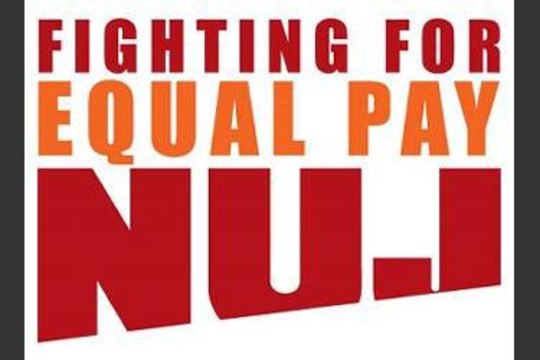
- IFJ
- Media centre
- News
- UK: IFJ supports equal pay demands
UK: IFJ supports equal pay demands
The IFJ has backed demands by the UK’s National Union of Journalists (NUJ) for equal pay for women workers.
The call comes as the union announce its was supporting 100 members at the BBC with equal pay claims and following the results of a survey which demonstrate eight out of 10 women workers believe they are being paid less than their male counterparts.
Over 78 per cent of respondents to an NUJ survey – published last week - said they knew or believed that men doing the same or comparative roles got better pay than their female counterparts. The findings followed the publication by the BBC of the on-air "talent" who earned more than £150,000. The list showed that only a third were women and of the 96 named only 10 were from black or minority ethnic backgrounds.
The union is now representing over 100 women who work across the BBC in a variety of roles and grades who have an equal pay claim. The BBC’s own report of its graded staff, overseen by Sir Patrick Elias, the former Appeal Court judge, concluded that there was "no systemic discrimination against women in the BBC’s pay arrangements".
The report did not include the on-air talent, which is subject to a separate review about to commence and will run until January 2018. The NUJ survey showed a different picture.
Comments included: "I am the same age as my male colleague, have worked alongside him for 20 years in the same job, but he is paid more than me." "I know a colleague who does similar work is paid 20 per cent more than me." "I believe I am paid less than all the men in my team."
Michelle Stanistreet, NUJ general secretary, said: "Men are often paid more than women because of outright discrimination, dated recruitment practices and inflexible working practices which make it difficult for women to juggle work and family life. Then there are the cases where women are not being paid the same even when they are doing the same job as their male colleague. “We have secured a commitment from the BBC to address the cases that NUJ members have brought forward – we are clear that in the course of pursuing these cases, industrially or through litigation, that we will not tolerate inequality and unequal pay. “We know that many other employers in the media industry are also offenders and will be working with our members in workplaces to carry out a series of surveys and studies, making equal pay a key industrial propriety for the NUJ.”
IFJ General Secretary Anthony Bellanger said: “Decades after legislation was introduced to end the gender pay gap the reality is still that women workers continue to be treated unfairly. Congratulations to the NUJ for taking up this crucial inequality”.
The UK is among the worst performing EU states on improvements to gender equality. Analysis by the TUC showed that the average woman has to wait nearly a fifth of a year before she starts to get paid, compared to the average man. Latest figures showed that the whole workforce gender pay gap is 18.4 per cent; this figure is much wider than the full-time media pay gap of 9.1 per cent, because it includes the two-fifths of female employees who work part-time.
The media industry reflects this sorry trend. The Reuters Institute for the Study of Journalism report, Journalists in the UK, found that more than half of women in the media earned less than £2,400 a month compared with 35 per cent of men – and they were less likely to be promoted than their male colleagues. The Chartered Institute of Public Relations 2017 edition of its State of the Profession revealed a pay inequality gap of £5,784, a modest reduction of £220 on the previous year’s figure.
One reason for the lack of action on the gender gap could be the paucity of women on the boards of media companies. The BBC has 10 men and four women, the proportion at Sky is 11:3, ITV 7:3, ITN 7:1; Channel 4 9:3; Trinity Mirror 6:2, Archant 6:1, Johnston Press 6:1 and Newsquest 13:2.
